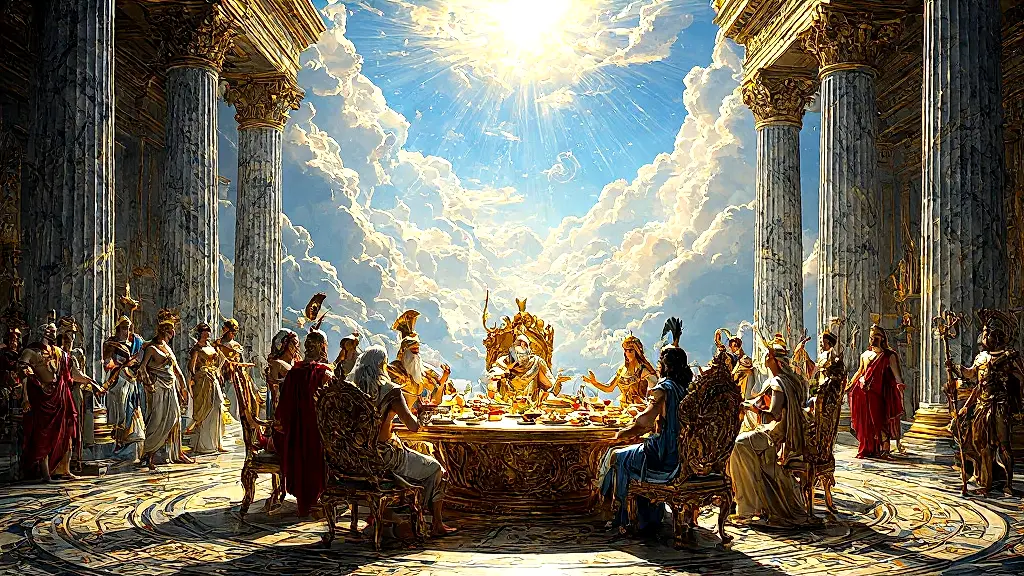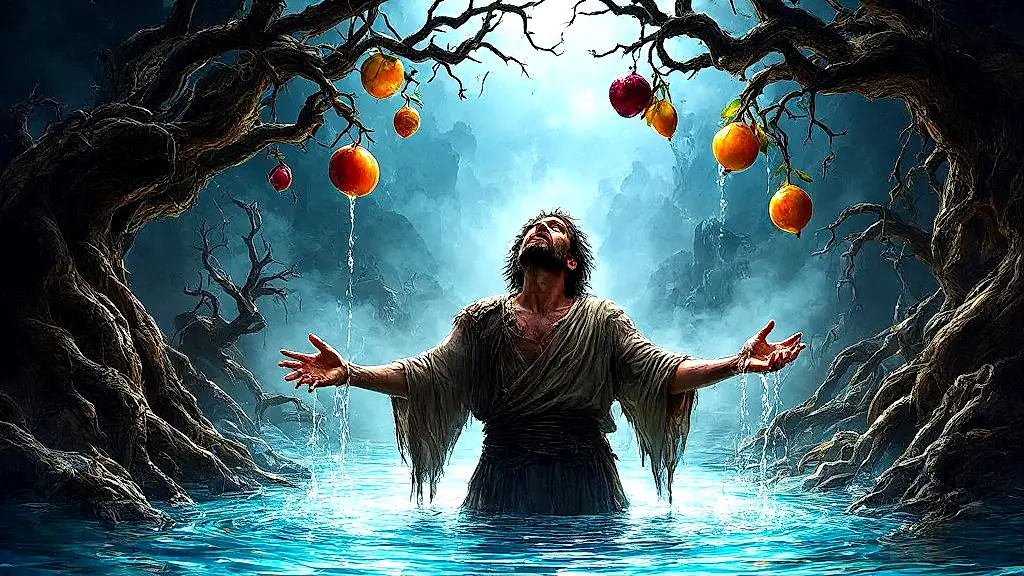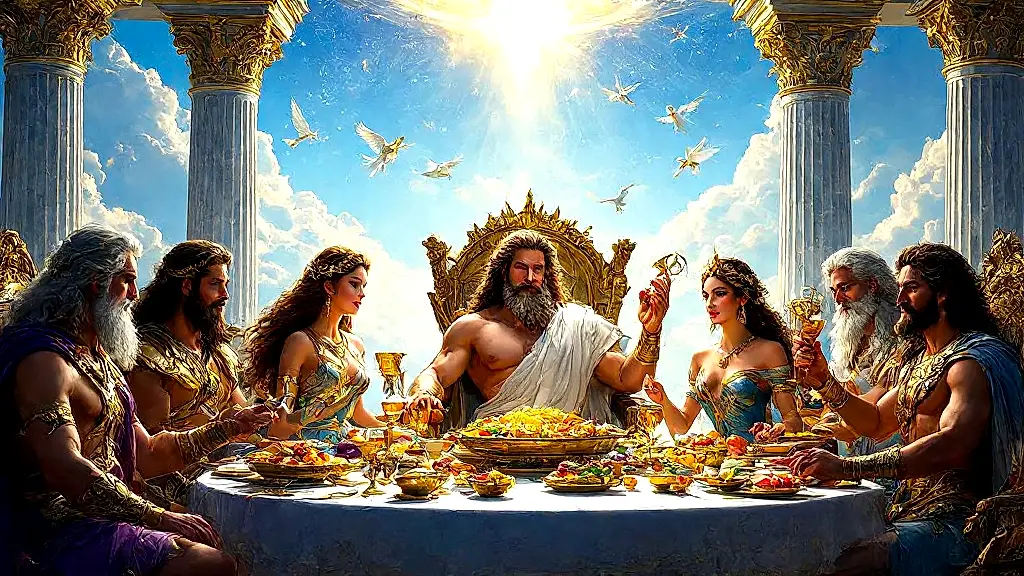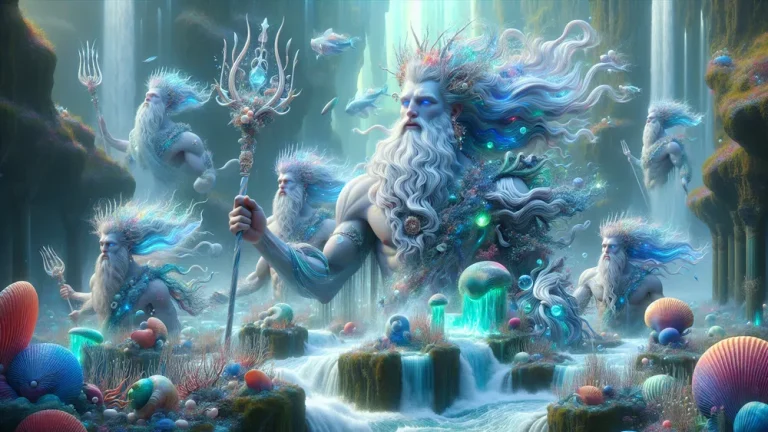Feast Of The Gods In Greek Mythology: Ambrosia And Divine Banquets
Picture a feast where the wine gives eternal youth and the food makes you unbreakable. In Greek mythology, this wasn’t just a dream – it was normal for the gods on Mount Olympus. Their famous feasts included ambrosia (the food of immortality) and nectar (the drink of divine power). These meals weren’t only about luxury. They showed the power and hierarchy of the gods, and how different they were from humans.
Key Points:
- The gods ate ambrosia to stay immortal and drank nectar for strength, with both keeping them young and powerful.
- Mount Olympus was their dining spot, a floating palace where they met to eat and make big decisions.
- Hestia kept the sacred fire burning, Dionysus handled the wine, and Ganymede served drinks after Hebe left.
- Tantalus got punished forever for stealing ambrosia and tricking the gods with a horrible meal.
- A golden apple at Peleus and Thetis’ wedding started a fight among goddesses, leading to the Trojan War.
- Prometheus tricked Zeus with a fake sacrifice, making humans keep the meat while gods got bones and fat.
- Other cultures like the Norse and Egyptians also had special god meals, but with different rules and meanings.
Deities like Hestia (goddess of the hearth) and Hebe (cupbearer of the gods) played key roles in these events. Mortals like Tantalus learned the hard way that these feasts had strict rules. But how did these gatherings actually work? What made ambrosia so powerful? And why did a single golden apple at a wedding start the Trojan War? Let’s explore the halls of Olympus, where every meal had meaning.
Feast Of The Gods In Greek Mythology: Overview and Key Facts
| Aspect | Key Facts | Mythological Sources |
|---|---|---|
| Purpose of Feasts | Divine banquets showed the gods’ hierarchy (like Zeus’ authority) and marked special events, such as weddings. Mortals like Tantalus were punished harshly for interfering. | Homer’s Odyssey, Hesiod’s Works and Days |
| Location | Held on Mount Olympus, a celestial realm humans couldn’t reach. Unlike earthly mountains, Olympus was described as a “floating palace” (Homer’s Iliad 1.499). | Homeric Hymns, Pindar’s Olympian Odes |
| Divine Food and Drink | Ambrosia (solid) provided eternal life, while nectar (liquid) restored divine strength. Mortals who consumed it, like Heracles, gained semi-divine status. | Homeric Hymn to Demeter, Euripides’ Hippolytus |
| Key Figures | – Hestia: Goddess of the hearth, she oversaw feast rituals.<br>- Dionysus: God of wine, he kept celebrations lively.<br>- Hebe/Ganymede: They served nectar. (Roles covered later.) | Hesiod’s Theogony, Iliad 20.232 |
| Famous Feast Myths | – Peleus and Thetis‘ Wedding: Eris‘ golden apple sparked the Trojan War.<br>- Prometheus’ Trick: He tricked Zeus by offering a fake sacrifice, which led to Pandora’s creation. (Details follow.) | Cypria fragment, Hesiod’s Theogony |
| Ambiguities | Sources disagree on ambrosia/nectar origins. Some myths say they came from the earth (Homeric Hymn to Apollo), others link them to divine herds (Odyssey 9.359). | Multiple, as noted in sources |
The Olympian Feast Hall: Where the Gods Ate
Let’s look at the dining area of the gods on Olympus. This was where they gathered for meals, and every part of it served an important purpose.
Mount Olympus: The Gods’ Dining Room
Picture entering a bright palace that floated above the clouds. This was Mount Olympus as described in Homer’s Iliad (1.606) – much more than just a mountain. Ancient texts say it was a divine fortress with bright, special air (Hesiod’s Theogony 690). It had gates that fixed themselves (Odyssey 6.42-46) and twelve thrones for the gods around a central dining area.
Most accounts place this dining room on the actual mountain in Thessaly. However, some later traditions claim it existed only in the heavens. This was where the gods met and ate ambrosia while making decisions. Their halls were always loud with laughter (Iliad 1.599), and their golden plates never emptied.

They sat on clouds that served as seats, in a place where no mortal could enter.
Mount Olympus was a shining, self-repairing palace in the sky where the gods feasted and made decisions, untouched by mortals.
The Gods Who Ran the Feasts
Have you thought about who kept the gods’ wine flowing and their plates full? The feasts on Olympus needed a divine team, with each god handling specific tasks. Hestia, sometimes forgotten, was the goddess of the hearth (Hesiod’s Theogony 453-506). Her eternal flame showed both physical warmth and the importance of gatherings. Meanwhile, Dionysus controlled the wine supply with his golden cup.
He made sure the nectar never ran out (Homeric Hymn to Dionysus 7.1-59).
Here’s how the gods managed the feasts:
- Hestia: Kept the sacred fire burning (symbol: flame)
- Dionysus: Oversaw wine and celebrations (symbol: thyrsus)
- Demeter: Guaranteed plenty of food (symbol: wheat sheaf)
- Hephaestus: Made golden tableware (symbol: anvil)
- Apollo: Provided music (symbol: lyre)
Some stories say Hermes sometimes helped serve wine (Homeric Hymn to Hermes 4.550-568), showing these roles could change. This system reflected Greek values – even gods needed specialists for proper feasts.
Hebe and Ganymede: The Gods’ Drink Servers
The gods had two special servers for their drinks. Hebe, whose name means “youth,” was the first cupbearer. She was the daughter of Zeus and Hera (Hesiod’s Theogony 921-923) and poured drinks from her golden cup. When she married Heracles, Zeus sent an eagle to bring the Trojan prince Ganymede to take her place (Homeric Hymn to Aphrodite 5.202-217). His name means “joy.”

Art often shows Ganymede with a pitcher shaped like an eagle. Hebe appears with a jar that gave youth. Their job was important because serving nectar properly followed divine rules. Some stories say Hebe still helped at special feasts (Pindar’s Nemean Ode 10), showing how roles could change in myths.
Ambrosia and Nectar: Food and Drink of the Gods
While the servers made sure everything looked perfect, what mattered most were the substances themselves – ambrosia and nectar, which kept the gods immortal. Let’s look at these special substances that made Olympian feasts so unique.
What the Gods Ate and Drank
The gods needed special food to survive. They ate ambrosia, which Homer said had “the fragrance of honey” (Odyssey 18.192-194), and drank nectar, a golden liquid that turned their blood into ichor (Iliad 5.339-342). Ambrosia smelled so strong it could heal dying gods (Iliad 19.347). Artists often showed it as honey-like paste or thin wafers. Nectar gave the gods their power.
Some stories say each god had their own version with different flavors (Athenaeus’ Deipnosophistae 11.38). These two substances worked together: ambrosia maintained their immortality, while nectar provided energy for their powers. Hesiod wrote they came from the same mysterious source (Theogony 793-804), but no mortal ever learned how to make them.
Their Magic Effects
What made these substances so powerful that even their smell could heal gods? Ambrosia had powerful healing properties. When Thetis used it on Patroclus’ body (Iliad 19.347), it stopped decay completely. Eating it regularly kept the gods forever young (Homeric Hymn to Demeter 236-242). Nectar functioned as an energy source for divine powers. One drink could sustain Zeus’ thunderbolts for days (Hesiod’s Theogony 793-804).
Aphrodite used it to bless Pandareus’ daughters (Homeric Hymn to Aphrodite 5.63-65), giving them exceptional beauty that lasted centuries.
| Substance | Main Effect | Other Effects | Myth Example |
|---|---|---|---|
| Ambrosia | Kept gods immortal | Healed wounds, stopped decay | Thetis preserving Patroclus (Iliad 19.347) |
| Nectar | Powered godly strength | Improved beauty, cleansed bodies | Aphrodite blessing Pandareus’ daughters (HH Aphrodite 5.63-65) |
Some texts suggest these effects needed proper rituals. The Orphic Hymns say stolen ambrosia often failed to make mortals immortal. The magic came from divine nature itself, not just the substances.
Ambrosia and nectar kept gods immortal, healed wounds, and powered their strength, but only worked fully when used by the gods themselves.
How the Gods Ate and Drank
The gods absorbed ambrosia and nectar differently than humans eat food. Zeus might drink from a golden cup shaped like a thunderbolt (Iliad 1.597-600), while ambrosia wafers appeared on magical plates that refilled themselves. Their meals were more about show of divine status than actual eating. They used special cups and plates to avoid mortal contamination.
Hera had an amphora engraved with pomegranates, and Ganymede poured nectar from a special pitcher in careful motions that copied human drinking customs. The food went directly into their ichor, the divine fluid in their veins (Homeric Hymn to Apollo 3.123-129). Even simple acts had deep meaning. When Demeter ate one pomegranate seed in the Underworld (Homeric Hymn to Demeter 372-374), this single bite tied her to that realm.
For gods, eating carried more symbolic meaning than nourishment.
Famous Feasts in Greek Myths
The Olympians ate daily meals that kept them powerful. But some feasts were more than food – they changed everything. These special occasions affected both gods and humans in important ways that changed history. When gods and mortals shared these meals, the events often involved major decisions or conflicts. What happened at these feasts could determine what occurred in the world afterward. They were important moments that shaped many famous myths.
The Wedding of Peleus and Thetis
Mount Olympus was decorated with garlands smelling of ambrosia as the gods gathered for Peleus and Thetis‘s wedding. This marriage was special because it was prophesied their son would be greater than his father (Apollodorus, Bibliotheca 3.13.5). The celebration became important divine history because they didn’t invite Eris, the goddess of discord.
When Eris threw her golden apple that said “To the Fairest” into the feast (Cypria), it started a dispute among Hera, Athena, and Aphrodite. Some versions say she aimed it at them (Hyginus, Fabulae 92), while others say she just let it roll. Either way, this small action began the events that led to Paris’s judgment and the Trojan War.
The wedding should have been happy because everyone knew Thetis‘s child would be special. Zeus had wanted to marry her until he learned their son would surpass him (Hesiod, Theogony 886-900). Instead, the celebration started a conflict among the gods that couldn’t be resolved. What began as a wedding feast ended up changing Greek mythology forever.
Tantalus’ Never-Ending Punishment
Tantalus stood beneath branches full of fruit that moved away when he reached for them, with water that always drained when he tried to drink. This was his punishment in Tartarus for crimes against the gods (Homer, Odyssey 11.582-592). His crimes varied – Pindar says he stole ambrosia for humans (Olympian 1.60-64), while others claim he served his son Pelops to test the gods’ knowledge.

The punishment was especially harsh because Tantalus had once eaten with the gods. The water wasn’t normal but came from divine streams that once fed Olympus (Pausanias 10.31.12). The fruits were like those the gods ate, constantly reminding him of what he lost. Later Roman stories added hanging rocks, but the main idea stayed the same: he was always near what he wanted but could never have it.
This story gave us the word “tantalize,” meaning to be tormented by something you can’t reach. While the details differ in various accounts, all agree Tantalus suffered one of mythology’s worst punishments for disrespecting the gods.
Prometheus’ Trick at Mecone
At the first sacrifice in Mecone, Prometheus set up a test that would help humans but cost the gods (Hesiod, Theogony 535-557). He prepared two offerings from an ox: one had good meat hidden in a stomach, while the other showed nice fat covering bare bones.
When Zeus picked the bones, it created the rule for all future sacrifices – humans kept the meat and gave the gods bones and fat.
The event had several important parts:
- The Setup: A feast to decide how gods and humans would interact
- The Deception: Two packages that looked different from their contents
- Zeus’ Choice: The god knowingly selected the worse option
- The Outcome: This became the standard way to make sacrifices
While it appeared Prometheus tricked the gods, later versions say Zeus let this happen (Aeschylus, Prometheus Bound). He hid his real plan – by accepting this deal, he had reason to keep fire from humans until Prometheus stole it. This also led to Pandora releasing troubles into the world. What started as a clever trick at a feast became the basis of Greek sacrifice and the cause of human suffering.
What Feasts Meant for the Gods
The gods’ feasts were more than just meals. These gatherings served important political purposes for the Olympians, where they showed their power and tested alliances. During these events, they maintained their divine hierarchy, often with major effects on the world. The banquets weren’t simply about eating – they were planned events that helped shape relationships among the gods.
Feasts Showed Who Was in Charge
The gods sat in specific positions at Olympian feasts, which clearly showed who held power (Hesiod, Theogony 881-885). Zeus always took the central throne, with Hera at his right side, while other gods sat in order of importance. Every placement mattered because it demonstrated their status in the divine hierarchy.
When Apollo claimed the prominent position at Delphi’s first feast (Homeric Hymn to Apollo 300-374), this showed his growing influence. Similarly, Demeter’s fast that caused famine proved even gods grew weak when they didn’t eat (Homeric Hymn to Demeter 305-333). These weren’t just meals, but events where gods displayed their power. The serving order also reflected this system.
Ganymede poured nectar first for Zeus, then his closest allies, while less important deities had to wait. This careful arrangement at feasts maintained the strict order of power among the Olympians.
The seating and serving order at godly feasts revealed their ranks, with Zeus in the center and others placed by importance, proving these meals were really about power.
When Mortals Crashed the Party
Some mortals made serious mistakes when they interacted with gods at divine feasts. Ixion accepted Zeus‘ hospitality but then tried to seduce Hera, which earned him eternal punishment on a burning wheel (Pindar, Pythian Ode 2.21-48). Their crimes were serious because they broke the strict rules that kept gods and humans apart.

Another case involved Tantalus, who shared the gods’ food with mortals. Similarly, Bellerophon attempted to ride Pegasus to Olympus (Homer, Iliad 6.155-202). These weren’t just etiquette violations but direct challenges to the divine order. The gods punished these actions harshly to maintain their superiority. These examples showed what happened when humans tried to become equal to the gods. The feasts were meant for deities alone, and mortals who overstepped faced severe consequences.
Godly Feasts in Other Ancient Cultures
The Olympians had their own ways of feasting, but other ancient cultures created different traditions for their gods. Egyptian and Mesopotamian civilizations held ritual meals that show interesting comparisons to Greek practices. These banquets reveal how various cultures approached the idea of gods needing nourishment. While the details varied, most ancient religions included special meals for their deities.
By studying these different traditions, we can see both similarities and differences in how cultures viewed their gods. The ways these meals were organized tell us much about each society’s beliefs.
Norse, Egyptian, and Roman Comparisons
The Norse gods in Valhalla drank the mead of poetry, which gave warriors both food and creative power (Prose Edda, Skáldskaparmál 5). Valkyries served this mead in golden cups. In contrast, Egyptian gods received meals through temple offerings during the Feast of Wag (Pyramid Texts Utterance 338). Priests delivered this food in rituals, unlike the Greek system where Ganymede served the gods directly.
These cultures approached divine meals differently. The Romans held lectisternium ceremonies where they placed statues of gods on dining couches (Livy 5.13). Meanwhile, Egyptians believed Ra consumed souls of the unjust during his nightly meal.

| Culture | Divine Food | Special Items | Main Function |
|---|---|---|---|
| Greek | Ambrosia and Nectar | Golden chalices | Maintaining immortality |
| Norse | Mead of Poetry | Draupnir’s cups | Inspiring warriors |
| Egyptian | Sheut offerings | Alabaster tables | Keeping cosmic balance |
| Roman | Ferculum dishes | Dining couches | Pleasing the gods |
The serving vessels held deep meaning. Greeks used Hephaestus-made gold cups, while Norse mythology mentions Draupnir, a self-copying cup (Prose Edda, Skáldskaparmál 35).
Egyptians used pure alabaster tables that represented their concept of Ma’at. Romans took the most dramatic approach by pretending gods attended their banquets, unlike Greeks who believed gods joined feasts without physical representations.
FAQs
1. What is the difference between ambrosia and nectar?
The difference between ambrosia and nectar is that ambrosia is the gods’ solid food conferring immortality, while nectar is their liquid drink granting divine strength.
2. Did any mortals consume ambrosia?
Mortals did consume ambrosia in rare cases, such as Tantalus and Heracles, though with severe consequences.
3. Why was Tantalus punished?
Tantalus was punished because he stole ambrosia to test the gods’ omniscience and served his son Pelops as food to mock them.
4. Which gods presided over feasts?
The gods who presided over feasts included Hestia, Dionysus, and Demeter, each overseeing aspects like the hearth, wine, and harvest.







